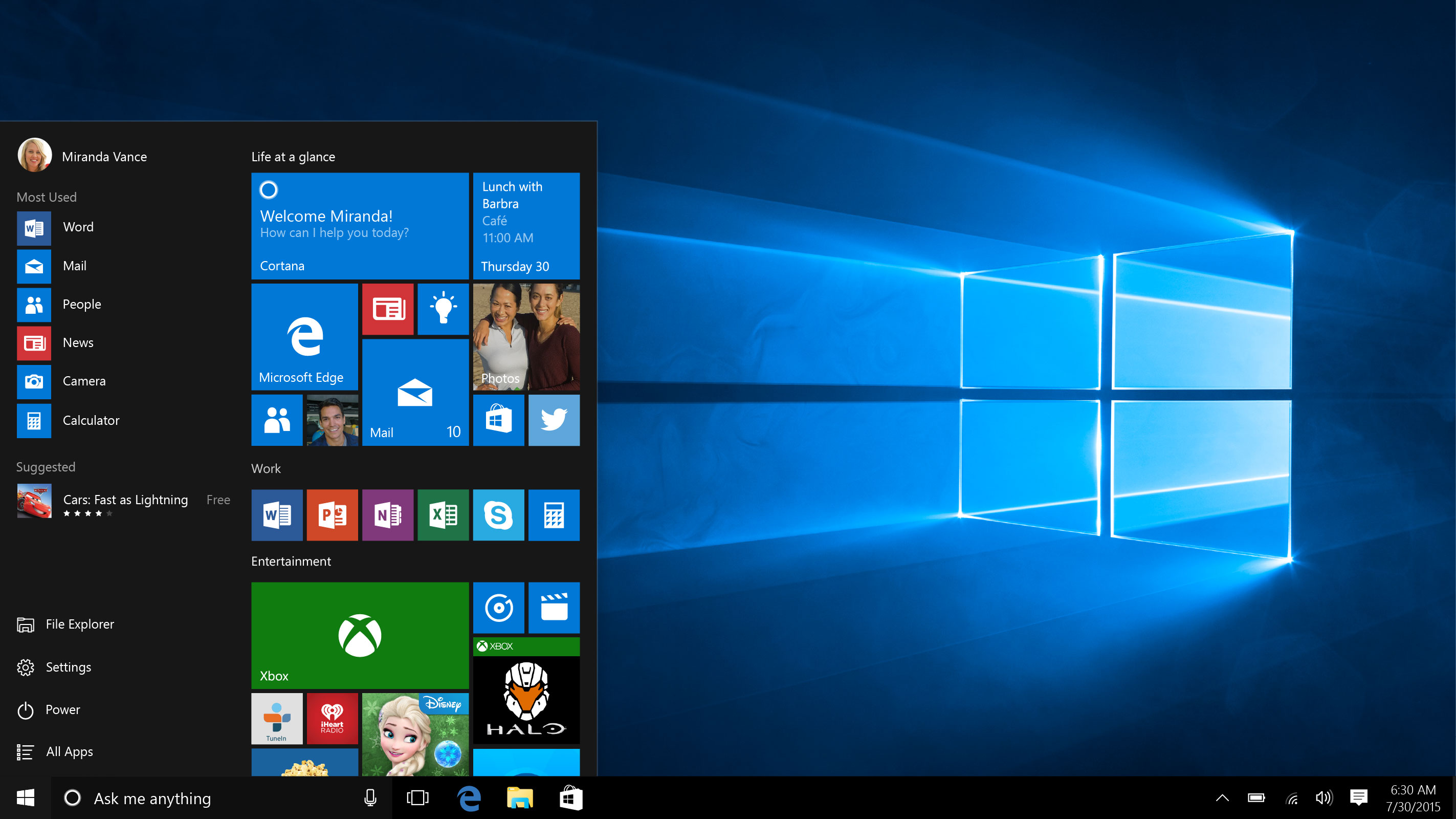Heads up, Windows 10 is going to claim 7GB of storage for future updates
The next major upgrade to Windows 10 will reserve around 7GB of disk space for future updates.

Microsoft has committed to upgrading Windows 10 twice a year, and to make those roll outs go smoother, the next version is going to earmark around 7GB of storage space for future updates, apps, temporary files, and system caches on some PCs.
"Our goal is to improve the day-to-day function of your PC by ensuring critical OS functions always have access to disk space. Without reserved storage, if a user almost fills up her or his storage, several Windows and application scenarios become unreliable," Microsoft explained in a blog post. "Windows and application scenarios may not work as expected if they need free space to function. With reserved storage, updates, apps, temporary files, and caches are less likely to take away from valuable free space and should continue to operate as expected."
This reservation of storage is going to happen automatically, both on new devices that come with Windows version 1903 preinstalled, and existing ones where 1903 is clean installed. It's not clear if this will also apply to in-place upgrades, either initially or down the road.
The precise amount of storage that gets reserved will vary, depending on how you use your PC. Microsoft anticipates it will "start at about 7GB," though it could be higher. It could also be lower—users will not be able to disable this feature, though they can reduce the amount by uninstalling optional features and additional languages.
Microsoft's decision to earmark several gigabytes for future updates and temporary files should make things go smoother, in some cases. It should also prevent users from seeing an error message related to storage space when trying to update their PC.
"On Microsoft Windows 10 systems that have limited storage space (often, thin clients or embedded systems), when you run Windows Update, the update process may display an error message due to insufficient storage space," Microsoft stated in a recent support document.
You can think of it as a storage tax that must be paid up front. It's not a bad solution in and of itself, though it's a bummer that users won't have the option of disabling it, especially if their primary storage drive isn't that big to begin with. So if you're rocking a 120GB SSD, consider yourself warned.
Keep up to date with the most important stories and the best deals, as picked by the PC Gamer team.
Paul has been playing PC games and raking his knuckles on computer hardware since the Commodore 64. He does not have any tattoos, but thinks it would be cool to get one that reads LOAD"*",8,1. In his off time, he rides motorcycles and wrestles alligators (only one of those is true).


